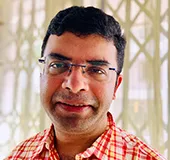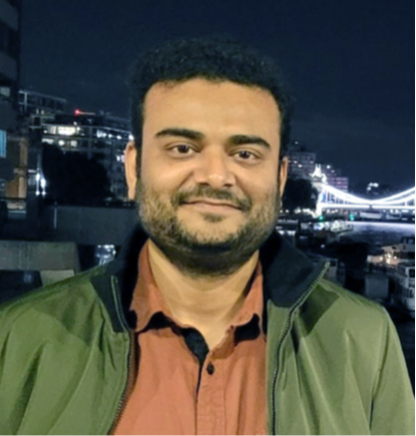
The People’s Liberation Army (PLA) is shifting focus to improving logistical elements that act as a force-multiplier during prolonged wars, learning from active conflicts in Europe and West Asia. Those looking for clues should pay heed to Chinese President Xi Jinping’s recent visits and pronouncements to see how this new approach is being operationalised.
In his capacity as head of the Central Military Commission that oversees the PLA, Xi visited the Army Medical University in Chongqing recently, pitching for greater innovation in battlefield treatment methods, healthcare of soldiers, and coordinated logistical support. He laid emphasis on building better medical universities for the PLA, linking it to strengthening of the war effort in his “New Era”. He called upon the medical students and military personnel to produce a new generation of ‘red military doctors’ who would strengthen the combat effectiveness of troops in war. This is in line with Xi’s repeated calls to improve the preparedness of the PLA. Xi’s visit to the premier military medical facility comes close on the heels of reports that the PLA carried out drills to evacuate injured troops from islands off the Zhejiang province’s coastline. Some strategists have speculated if the military exercise was meant to test PLA battle readiness in a possible event of China’s invasion of Taiwan.
Xi’s visit to the premier military medical facility comes close on the heels of reports that the PLA carried out drills to evacuate injured troops from islands off the Zhejiang province’s coastline.
Xi seldom travels overseas since the pandemic. Yet when he does so, it comes with underscoring some propaganda points. Xi’s visit to Europe coincided with the bombing of the Chinese embassy in the erstwhile Federal Republic of Yugoslavia by NATO in 1999, which caused the deaths of three Chinese nationals. Xi also sought to mainstream memories of the incident by publishing an article in a Serbian news outlet, highlighting the devastation of how NATO airstrikes led to 8,000 civilian casualties and displaced nearly a million people. He has drawn attention to the importance of narrative building at a time when the West has been excoriating Russia over its campaign in Ukraine. Additionally, the US has also tried to highlight violations of human rights by China.
Xi’s act of shaping the narrative battle in the world must also be seen in conjunction with the recent development of instituting the Information Support Force (ISF), after disbanding the Strategic Support Force that was tasked with psychological warfare and developing capabilities in cyberspace, among others. Xi has proposed the concept of ‘wǎngluò xìnxī xìtǒng’ [网络信息体系], loosely translating into ‘internet information system’, and its application as crucial to winning modern battles. Chinese-state media has billed the ISF as a key pillar of a modern military service, and an important step in expediting the modernisation of nation defence capability. A pointer to the Communist Party of China’s (CPC) conceptualisation of warfare comes from an article published on the Ministry of National Defence website that says supremacy over information will be a key variable in winning modern conflict, which is essentially contestation over systems. It adds that information control decides the trajectory of a conflict in modern times.
Chinese-state media has billed the ISF as a key pillar of a modern military service, and an important step in expediting the modernisation of nation defence capability.
The following factors may have influenced the CPC’s initiative to shift gears to non-combat tools that aid the war effort. First, war is a costly business, Chinese strategist Sun Tzu warned rulers about how a long-drawn struggle would drain the kingdom’s resources—both money and human. In the Russia-Ukraine conflict, then-Russian Defence Minister Sergei Shoigu disclosed that 5,937 personnel had been killed as of September 2022. Former Central Intelligence Agency (CIA) director David Petraeus estimates that Russia lost double the number of military personnel within a month of the war as compared to United States(US) casualties in nearly two decades of its involvement in Iraq. This situation has been compounded by videos being posted on social media showing Russian soldiers complaining about the high death tolls, and Russian troops disobeying orders. Meanwhile, Ukraine’s ‘I want to live’ initiative, which helps Russian soldiers surrender to the Ukrainian military, has received strong support. In the case of the US, its air superiority proved advantageous in rescuing wounded soldiers during the war in Iraq and Afghanistan. However, over the years, the Pentagon has been preparing its military medical personnel for the next conflict with a near-peer adversary. The US Defense Health Agency is reworking its medic skills and training to meet the needs of medical evacuation in large-scale combat operations. In China’s case, PLA’s involvement in protracted conflict may have a bearing on the CPC’s survival. Second, Xi’s moves on information warfare may have also been influenced by the divergent global reactions to the Russia-Ukraine and West Asia conflicts. In the former case, Russia finds itself isolated, whereas in the latter, there is an outpouring of pro-Palestinian sympathies in the ongoing Hamas-Israel strife as seen from demonstrations in Western campuses. Thus, Xi realises that shaping public perception will be important in a conflict.
The question remains is the CPC’s new approach to information warfare already being operationalised. The Philippines Foreign Ministry has accused China of using “fake narratives” with respect to an ongoing maritime dispute in the South China Sea to spread confusion among the Filipino public, and interfering in its internal affairs. The Philippines government has stated that China’s aim—behind releasing a purported audio recording between a senior Philippines naval officer and a Chinese diplomat—was to create an impression that there was an informal accord between the two nations concerning a dispute regarding the Second Thomas Shoal.
The US Defense Health Agency is reworking its medic skills and training to meet the needs of medical evacuation in large-scale combat operations.
Sun Tzu argued that drums and gongs were important battlefield weapons to make others receptive to one’s point of view. It must be noted that the move to establish the ISF comes close on the heels of efforts by the US government’s crackdown on Chinese video-sharing platform TikTok to divest it of Chinese ownership on national security grounds. Does it mean that the PLA will take a greater interest in information warfare?
The importance of information warfare in Xi’s strategic thinking, and the call to improve China’s strategic capabilities in this regard present new challenges for India. Following the 2020 Galwan clashes, India worked to reduce Chinese influence, banning Chinese apps including TikTok, but agreements on sharing content between Chinese news agencies and Indian media remain a key vulnerability.
Kalpit A Mankikar is a Fellow at the Observer Research Foundation
Satyam Singh is a Research Intern at the Observer Research Foundation
The views expressed above belong to the author(s). ORF research and analyses now available on Telegram! Click here to access our curated content — blogs, longforms and interviews.




 PREV
PREV



